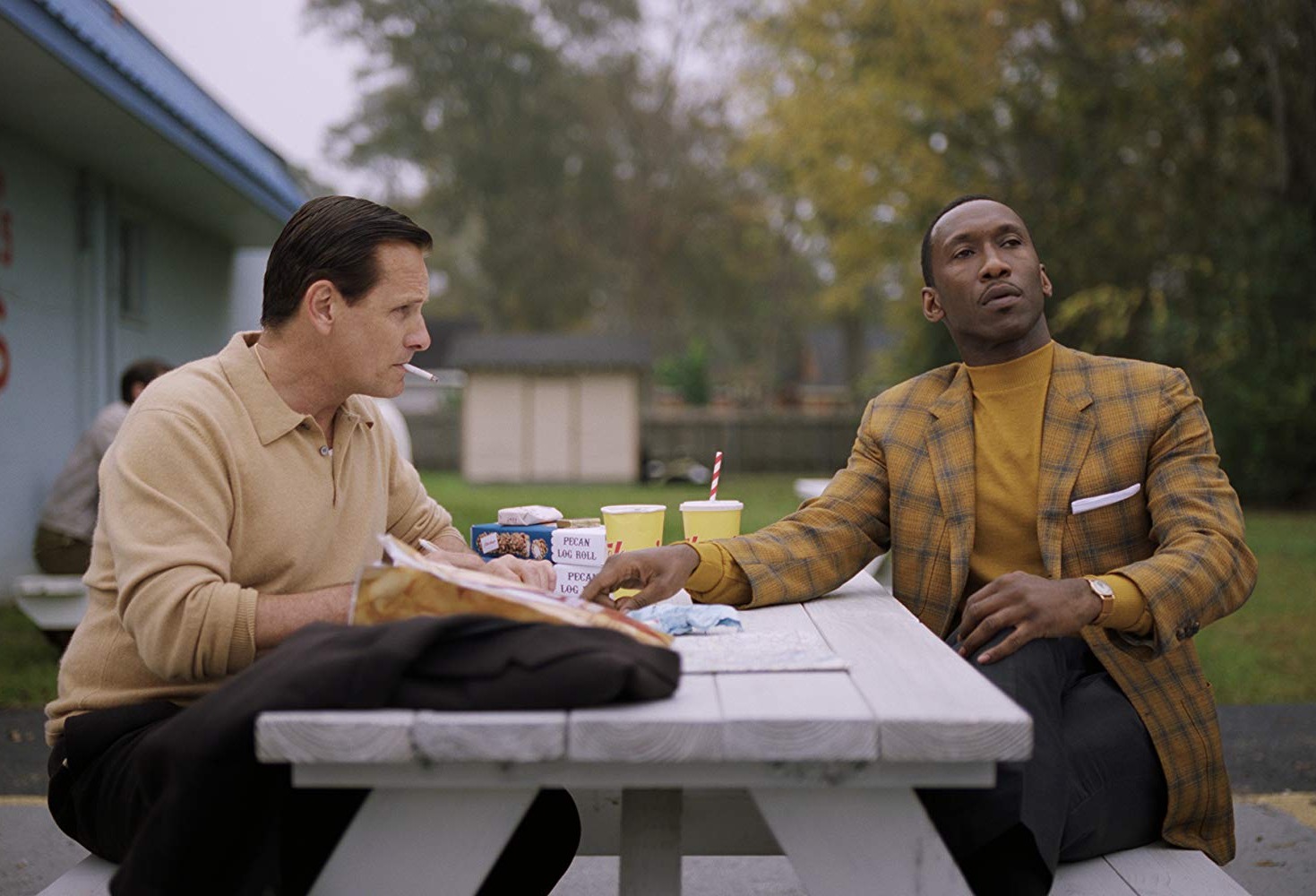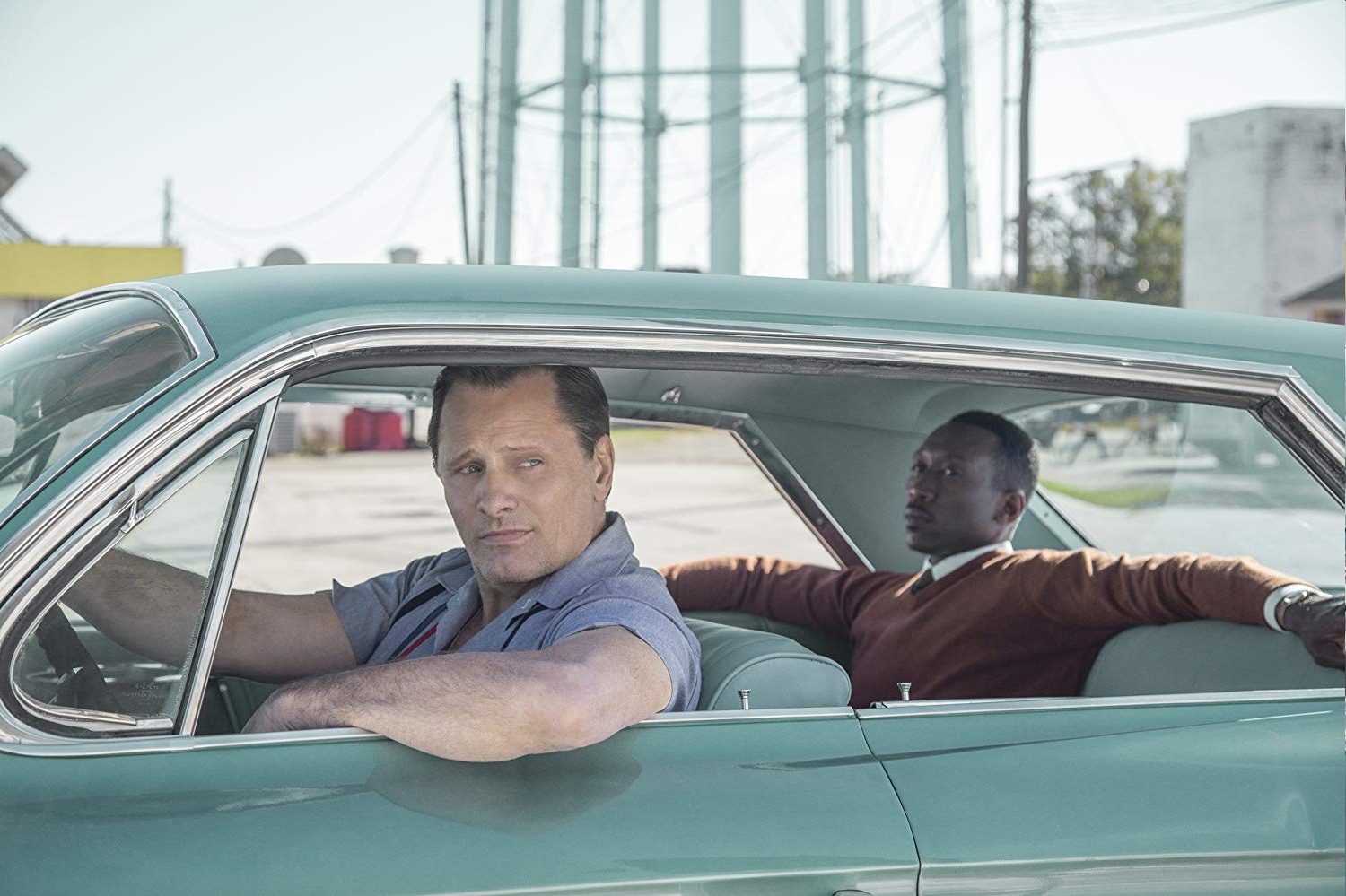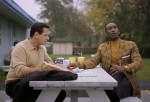When I first heard of Green Book, I really did think to myself, “Oh, I bet it gets lots of Oscars, because it’s the kind of palatable film about race and racism that Hollywood loves to tell.” It’s historical (set in the early ‘60s), it’s loosely based on a true story (Dr. Don Shirley and his driver), and it stars two of the best actors of their generations, Mahershala Ali (an Oscar winner) and Viggo Mortensen (a multiple Oscar nominee). It’s about dudes and racism and it seemed vaguely reminiscent of Driving Miss Daisy. Green Book made the rounds at several film festivals and critics liked it, and some festivals even gave it some awards. Green Book got a wide release (following a limited release) this past weekend. And it went nowhere during the long holiday weekend. Which caused Vulture to wonder if American audiences have outgrown the simplistic and Trumpian Both-Sidesism of Hollywood’s race politics. From Vulture:
To understand why [the film bombed], it’s necessary to take a closer look at Green Book’s strategic and timeworn take on racism — a “we all have something to learn” approach that, on paper, may mark it as both a reaction to the polarization of the Trump era and a symptom of the both-sides-ism that often defines it. Tony is a tough working-class-Italian family man who applies for a job driving Don Shirley through the South. That might be a reasonable setup through which to explore some of the, what’s it called again, “anxiety” that many white people felt when Obama was elected, except that the movie stacks the deck against Don from the first time we meet him. Chilly, aloof, and so refined that he literally lives above Carnegie Hall, Don conducts Tony’s job interview in gold raiment, sitting on a thronelike chair on a raised platform.
Another movie might have explored Don’s costumed hauteur from within, understanding it as a defense, a calculation, even a performance. (The real Shirley was also a psychologist, a fact about which Green Book expresses virtually no interest.) But this film uses his remoteness geometrically; it’s one point on a triangle, exactly as far from the apex that represents a warm and human ideal as the other point — Tony’s unregenerate coarseness and frank racism — is.
Green Book sometimes feels less imagined than measured with a protractor…. Tony needs to broaden his horizons and learn how to write his wife a nice letter (he ends up taking dictation, Cyrano-style, from Don, who naturally has nobody to write nice letters to), but also Don needs to learn to enjoy fried chicken and Aretha Franklin and be more comfortable in his skin. Tony needs to grow up (because racism is, in movies like Green Book, primarily a sign of immaturity), but also Don needs to loosen up; he’s so constricted that he owns a chess set with only white pieces! Tony needs to get a little smarter, but also Don is too smart, like Obama was. “It don’t look fun to be that smart,” Tony — so unrefined yet so observant about deeper truths! — writes home. (Don didn’t need to help him with that sentence.)
Green Book is a but also movie, a both sides movie, and in that, it extends a 50-year-plus tradition of movies that tell a story about American racism that has always been irresistibly appealing, on and offscreen, to that portion of white Americans who see themselves as mediators. They’re the reasonable, non-racist people poised halfway between unrepentant, ineducable racists on one side and, on the other, black people who, in this version of the American narrative, almost always have something to learn themselves.
Vulture’s analysis made me happy that I chose to see Widows rather than Green Book. It’s also worth noting that Viggo completely bungled the promotion just when people first started paying attention – it was Viggo who thought he had the right to drop the n-word in the middle of a Q&A session, and I truly believe that incident was the first time the public at large even heard about Green Book. Still, Green Book’s calculation is as Vulture notes – that Viggo’s crude, racist white character is the one who is “humanized” and the story is told through his eyes, as if he’s the hero. And here’s something that happened just as I was writing this up: the National Board of Review gave VIGGO their Best Actor Award and the NBR also named Green Book their best film award. So… even though the film is problematic, and even though Don Shirley’s family wants no part of it (more on that in a moment), the most influential film critics’ association is still giving Viggo their Best Actor Award, and their top honor for best film. Ugh.
As for Don Shirley’s family hating the movie – it’s true. They spoke out last week, saying that the film is a “depiction of a white man’s version of a Black man’s life,” and that the film is full of “lies” and “distortion.” My take? Don’t see this film.
Photos courtesy of ‘Green Book’ and Backgrid.
















Interesting about Dr. Shirley’s family. By contrast, I believe the screenplay was written by VM’s character’s son. Pass.
Really? Well that explains the “from the white man’s point of view” critique. I wonder if he ever consulted the Shirley family? By the sounds of it he most likely didn’t. Such a shame, I was actually interested in seeing the film but if it’s as flawed & inaccurate as they say I might sit this one out instead.
Bummer. I was looking forward to seeing this, but may now wait until it’s out on DVD. Also, It wasn’t just the south where this stuff happened.
My grandparents were Jewish farmers in Central New York. Zaydie (known to all as “Billy the Jew”) worked as a peddler from 1915 until 1923 (or thereabouts), to earn the money for a downpayment. The property was a house and 500 acres with a railroad line through it. He made an offer, but the owner refused to sell to a Jew. The bank arranged for a straw buyer and the house and land remained in our family until last year.
There are a lot of stories between that and the story my mom and aunts (who are all dead now) told my sister and me five years ago: One night, in a typical Central New York blizzard that had shut down the roads between any larger cities, a jazz band comprised of all black musicians got stranded and no hotel would let them have a room. They ended up at the farm (needless to say, the accommodations were very home-like, but on the upside, they were free and I’m sure they included breakfast). I believe an impromptu house concert was also involved.
As is common with creatives, they had day jobs. They were all Pullman porters who worked the train route between New York City (where they – and our extended family – lived) and Upstate.
“After that,” Aunt Ann said, “Ma and Pa never had to worry when we took the train to New York. Those men took great care of us.”
Such a lovely story, thank you for sharing.
Great story. Catskills?
Closer to the Adirondacks. It was on Route 20 in Sangerfield.
Loved this. Thank you!
<3
I love your story, thank you for sharing!
I love stories like this… thank you for sharing.
When I first watched the trailer for Green Book, I instantly realized that it was a movie intended for white people to understand racism. I was not interested in sitting through another movie that’s intended to teach white people about just being decent human beings. It was not a movie intended for me and my family. We already understand racism and it’s many facets. No thanks.
Co-sign. Not interested in another story of racism in the 50s and 60s through the eyes of a white person.
I think audiences are getting theor fill of Hollywood’s beloved “white savior” plot device.
Never drawn to these movies – this, Driving Miss Daisy, The Help. I’m white, and know plenty of fellow white people who felt virtuous for watching them and made sure to let everyone know they saw them, as if it’s a badge of honor. The kinds of movies that make people feel better but not necessarily do better. These films just seem so artificial, almost hokey. But then I found “Love Story” to be manipulative trash when I was a teenager, so maybe it’s just me.
I dunno. I might or might not see it just for the performances because I really love both of these actors. Plus I like to reserve my judgement until I’ve actually seen something for myself.
I think pretty much any film dealing with racism these days is problematic in one way or another, to be honest. What actually interests me about this particular story is the fact that, in America in the 50’s and 60’s, Italians weren’t exactly considered to be “white”, so they faced a lot of discrimination as well. I’m curious to see whether this is acknowledged in any way, or whether it makes any difference in the way the story is told.
I know some Italian-American people (I am not Italian) who still call Wasps “white” today.
I was going to see this movie because I love Mahershala Ali to bits, but I’ll take a pass now. Definitely a no-go since if the family is against it. Did anybody in the production know this?
If Pete Farrelly is involved… probably. And they probably didn’t care. Remember his behavior on the last season of Project Greenlight?
Waste of acting talent. I won’t see it. Statements from Dr. Shirley’s family say it all.
Yeah I was initially interested in seeing this, but after Viggo’s comment and then reading this, I’m giving it a hard pass.
Viggo made a mall mistake describing events of the past and sincerely apologized. I don’t know about the movie thou.
There was an interesting conversation that went on last year and continued on to this year about why it’s important who reviews these films as well. A movie like this is intended for a white audience, so when a white critic reviews a film like this, they will probably have a more favorable view than a black critic. Not that it’s a bad film, it’s just corny and predictable. The same thing happened last year with Three Billboards, the acting was good, but it should never have gotten the praise it did for the film as a whole. And when black critics said as much, they tried to frame it as a “backlash”.
Ugh, I WISH this movie wouldn’t keep winning these awards. I thought maybe when it stumbled initially at the box office it might quietly go away, but unfortunately I think it’s going to hang on in there and keep crashing the party and winning awards. I want lots of great things for Mahershala Ali, but not with, or for, THIS movie. Gahhh.
I’m getting a Three Billboards flashback. A paint by numbers movie formulated to please white Oscar voters. They get to feel white guilt AND feel good about themselves. I’m sick of these movies with characters like Sam Rockwell’s and Viggo’s.
Too late, I already saw this movie last weekend with my family! My aunt had passes to the movies and we were trying to see Bohemian Rhapsody but it was sold out so we saw Green Book instead. The ads for the movie have been all over the NYC subway so I was intrigued. I knew the very basic outline of the movie–white guy who is a driver for a black musician who goes on tour in the south but that was about it. I didn’t know it was based on real people and I didn’t know anything about Don Shirley at all. The performances of Mahershala Ali and Viggo Mortensen were amazing and I don’t regret seeing it. Does the film have its flaws? Absolutely. There is one scene in particular that made me very uncomfortable where Viggo’s character Tony decides to get some fried chicken because supposedly Mahershala’s character Don had never tried it and he keeps insisting that Don try it. That was the standout scene for me that was definitely very cringy and eye rolling for me.
What most of you probably don’t know is that Tony Vallelonga’s son (Viggo’s character) was heavily involved in the making of this movie and was a co-writer. So yes, the movie is biased towards Tony’s perspective from the get go. According to the son, he had Don’s blessing to make the movie but Don instructed him to wait until he had passed away (the movie hints at Don’s homosexuality and it is thought he didn’t want to be outed during his lifetime). He made it sound like Don was very close to the family and like an extended family member. Both Tony and Don passed away in 2013 so we’ll never know if they would have had issues with the way they were portrayed on screen. I have no idea if Tony’s son ever extended the offer to Don Shirley’s family to be involved with the movie, but I wouldn’t be surprised if he didn’t. This article contains a good breakdown of the major plot points that are true in the movie: http://www.historyvshollywood.com/reelfaces/green-book/
So maybe this movie was made for white audiences. I understand the problematic aspects of this movie and I already knew about Don Shirley’s family criticizing its portrayal of Don as I did my own research after seeing it (which I was not aware of before I saw it). But it would be so great for Mahershala and Viggo to be recognized for their work as I thought both their performances were great. If anything, go see the movie for Mahershala. I’ve been a fan of his since House of Cards.
This is disappointing. I thought it looked good, and I really like Mahershala Ali. Ugh.
I saw this movie last weekend and actually didn’t find it to be as problematic as people made it sound. Sure, there’s a bit of the white guy makes black friend & becomes a bit less racist thing going on. But the more interesting part of story was about how Dr. Shirley is isolated from other people because of/inspite of his genius, even when he’s surrounded by people who have known him a long time (his band members) and by the end of the movie finds himself able to let people into his life & allow them to know him beyond the superficial. It’s not like Frank is suddenly transformed and no longer racist by the end of the film, he largely goes back to his old life, it’s Don that is changed by the experience. Which arguably is a bit “white saviory,” but is really also the theme of many a movie about human relationships outside the context of racism. Both actors give amazing performances though that would be worthy of recognized even if people don’t love the film.
I’m torn. I really love Mahershala and was looking forward to seeing it, but if Dr. Shirley’s family hates it, I don’t want to support it. The last thing I want to do is give money to another White Savior film.
“A White man’s version of a Black man’s story” is exactly what I thought upon seeing the trailer. Like The Help, The Blind Side, The Soloist, and many more.
Also, when I saw Pete Farrelly was involved… another reason for a hard pass.
I hate everything about this.
Also, I wouldn’t take the National Board of Review serious. When I first saw the winners I knew the rumors of Warner Bros bribing them was true. They’re a mess. But at least, Crazy Rich Asians won best ensemble.
I will probably go see it because I’m a big fan of Viggo. I have loved Ali ever since he was in HoC and want to support him.
I saw it and loved it. It’s a part of American history and this movie is not the problem. I swear sometimes I think people in America forget that they um live in America. Some people expecting this country to be something it never has been.